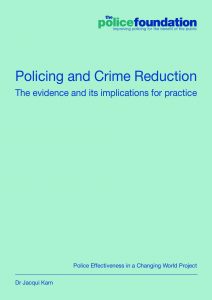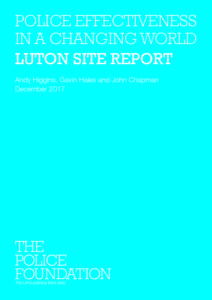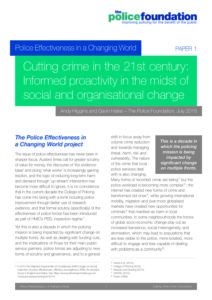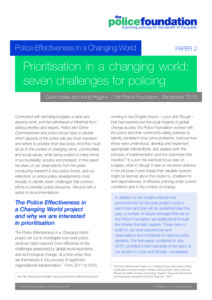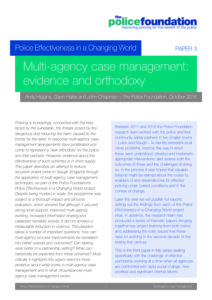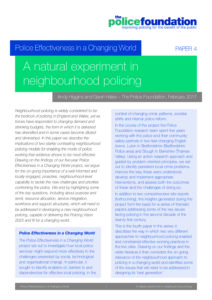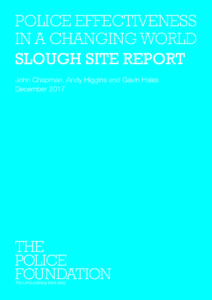
Rick Muir the Police Foundation’s director introduces the Police Effectiveness in a Changing World project findings.
Gavin Hales and Andy Higgins of the Police Effectiveness in a Changing World project team in conversation about the project’s findings.
New challenges for local policing
Police effectiveness has never been more important. Austerity now means that value for money is key and proving ‘what works’ through evidence based policing is being taken much more seriously. Additionally, reducing long-term harm and demand for services is increasingly recognised as a practical solution to lowering costs.
The police service is being affected by significant changes on multiple fronts. In addition to funding cuts, forces are adjusting to new forms of scrutiny and governance and a shift in focus from volume crime reduction towards managing threat, harm, risk and vulnerability.
Crime is also changing. Many forms of recorded crime are falling but with the internet, international mobility and globalised markets creating new opportunities for criminals, the police workload is becoming more complex. In some neighbourhoods increasingly transient citizens are more difficult to engage and less capable of dealing with problems as a community.
Key questions we asked about police effectiveness
- What are the implications of this multi-dimensional change for the delivery of effective local policing?
- How might a better understanding of the local effects of social, economic and technological change improve the response to local crime problems?
- On what does effective local policing depend and how can this be enabled? What are the barriers to achieving this?
An action research approach to police effectiveness
Between 2011 and 2015, our research team worked closely with the police and their community safety partners in Luton and Slough – two English towns that had experienced the local impact of global change particularly acutely.
Using action research we took a problem-oriented approach by identifying local crime problems, improving the way they were understood and developing interventions to tackle them. Then we assessed the outcomes of these and the challenges of implementing them.
Throughout the project we drew on the wider evidence-base on police effectiveness to promote local partnerships, to better deal with the ‘changing world’ and to find sustainable solutions to local crime problems. Most importantly we sought to learn lessons from the process of working with forces on the ground.
Discussion papers
Earlier Publications

